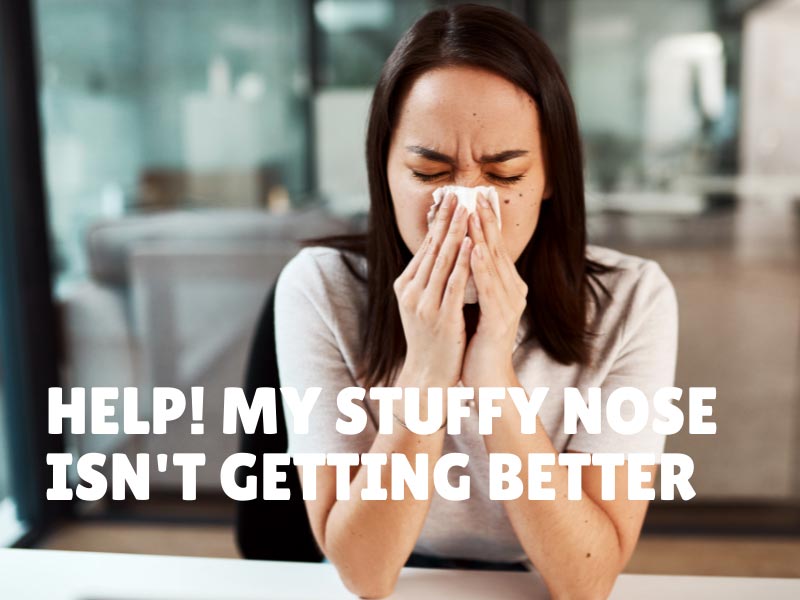Why Do I Have Winter Allergy Symptoms?
 An allergy is a reaction by your immune system to something in your environment, such as pollen, mold, dust, or foods. Some people have mild symptoms, but when allergy symptoms become severe they can have a negative effect on everyday life for the sufferer.
An allergy is a reaction by your immune system to something in your environment, such as pollen, mold, dust, or foods. Some people have mild symptoms, but when allergy symptoms become severe they can have a negative effect on everyday life for the sufferer.
Everyone in Michigan is familiar with spring allergies when many people suffer from common allergy symptoms as sneezing and runny nose. Winter allergies, however, can frustrate people who are not sure what is causing the symptoms.
There’s no pollen and nothing is blooming, so what is going on?
Indoor Allergies In Winter
With many of us holed up inside during the winter, we are exposed to a lot of indoor allergens. If our immune system overreacts to these indoor substances, we can have many of the same symptoms that occur during spring, summer, and fall.
Another reason for increased winter allergies could be due to climate change, according to researchers at the University of Michigan. New research published in 2022 linked longer and more intense allergy seasons to climate change.
In Michigan, maples can begin pollinating as early as late February, and the weed allergy season now lasts well into November. This leaves only December and January as safe from pollinating trees, grass, and weeds. Beyond our outdoor pollinators, we have plenty of indoor allergens that can cause trouble.
Common indoor allergens during the winter include, but are not limited to:
- Dust
- House dust mites
- Pet dander
- Foods
- Mold
- Latex
- Medications
Symptoms of Indoor Allergies
- Runny nose or nasal congestion
- Sneezing
- Itchy eyes, nose, and throat
- Watery eyes
- Rashes, hives, itchiness or other skin conditions
- Asthma
- Postnasal drip
- Wheezing and shortness of breath for those with allergic asthma
Tips For Reducing Michigan Winter Allergy Symptoms
- Avoiding allergy triggers is the best way to control your symptoms, but sometimes your triggers can be hard to identify. Pay attention to where and when your symptoms occur.
- Keep humidity levels low in your home to reduce dust mites and mold, but be cautious of very dry air as dry air can increase allergic symptoms
- Avoid upholstered furniture and wall-to-wall carpeting if possible
- Wash bedding in hot water frequently – at least once per week
- Vacuum floors and furniture regularly
- Change the filter on your home’s furnace regularly
- Use dehumidifiers in damp areas of your home and basement
- Pets are a chief cause of a lot of allergies – Keep pets out of your bedroom and certainly off your bed, wash any pet bedding regularly, and bathe your pets often
- Use an air purifier and change your HVAC system filters frequently during the winter
Consider Allergy Testing and Treatment
Even when you do everything possible to avoid allergens, sometimes it isn’t enough to control the symptoms.
If you have tried over-the-counter antihistamines, neti pots / nasal irrigation, and nasal sprays but it still isn’t enough, talk with your doctor to ask about allergy testing and treatment options.



